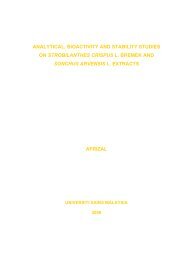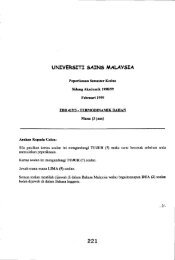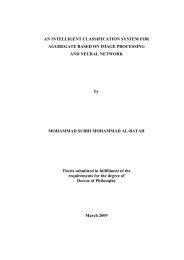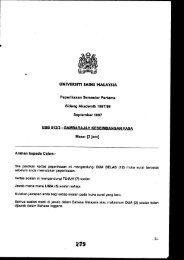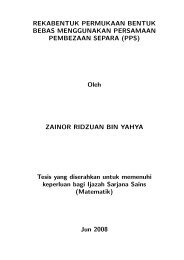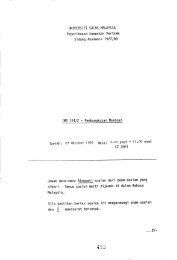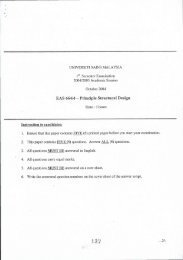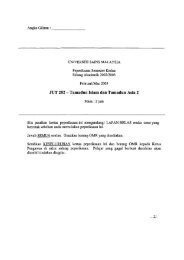GENETIC VARIABILITY AND DIFFERENTIATION ... - ePrints@USM
GENETIC VARIABILITY AND DIFFERENTIATION ... - ePrints@USM
GENETIC VARIABILITY AND DIFFERENTIATION ... - ePrints@USM
You also want an ePaper? Increase the reach of your titles
YUMPU automatically turns print PDFs into web optimized ePapers that Google loves.
population to another; chemical prophylaxis; control of hatchery sanitation and<br />
disinfection (Ruangpan, 1988).<br />
2.2 DNA Microsatellites<br />
2.2.1 General Characters of Microsatellites<br />
Microsatellite loci were discovered in the late 80s. Microsatellites, also called<br />
simple sequence (Tautz, 1989) and short tendem repeats (STRs; Edwards et al., 1991)<br />
have probably become the most popular and powerful method for identifying highly<br />
polymorphic Mandel markers (Hancock, 1999; Li et al., 2002; Scribner and Pearce,<br />
2002). Their wide applicability span over areas namely populations genetics, parentage<br />
and kinship analysis, genome mapping, forensic DNA studies, identifying individuals,<br />
reconstruction of human origin, hybridization studies, molecular epidemiology and<br />
pathology (O’Connell and Wright, 1997; Goldstein and Schlötterer, 1999 and references<br />
therein; Liu et al., 1999; Chistiakov et al., 2006).<br />
Microsatellites are made up of 1-6 base pairs sequences which are tandem<br />
repeated and typically span between twenty to a few hundred bases (Beckmann and<br />
Weber, 1992; Hancock, 1999; Schlötterer, 2000). It has been detected within every<br />
organism so far investigated, in eukaryotic as well as prokaryotic genomes. These loci<br />
appear to be highly abundant and dispersed throughout the genome (Weber and Wong,<br />
1993).<br />
Microsatellite generally has higher mutation rates than non-repetitive DNA.<br />
Mutation rates of microsatellite are estimated at 10 -3 to 10 -4 per locus per gamete per<br />
15



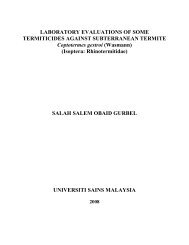
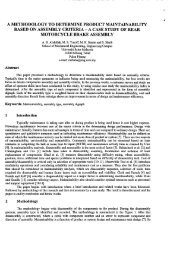
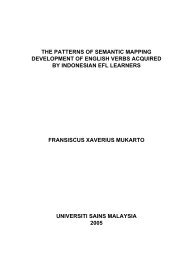

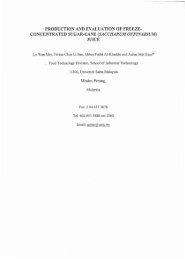
![[Consumer Behaviour] - ePrints@USM](https://img.yumpu.com/21924816/1/184x260/consumer-behaviour-eprintsusm.jpg?quality=85)
